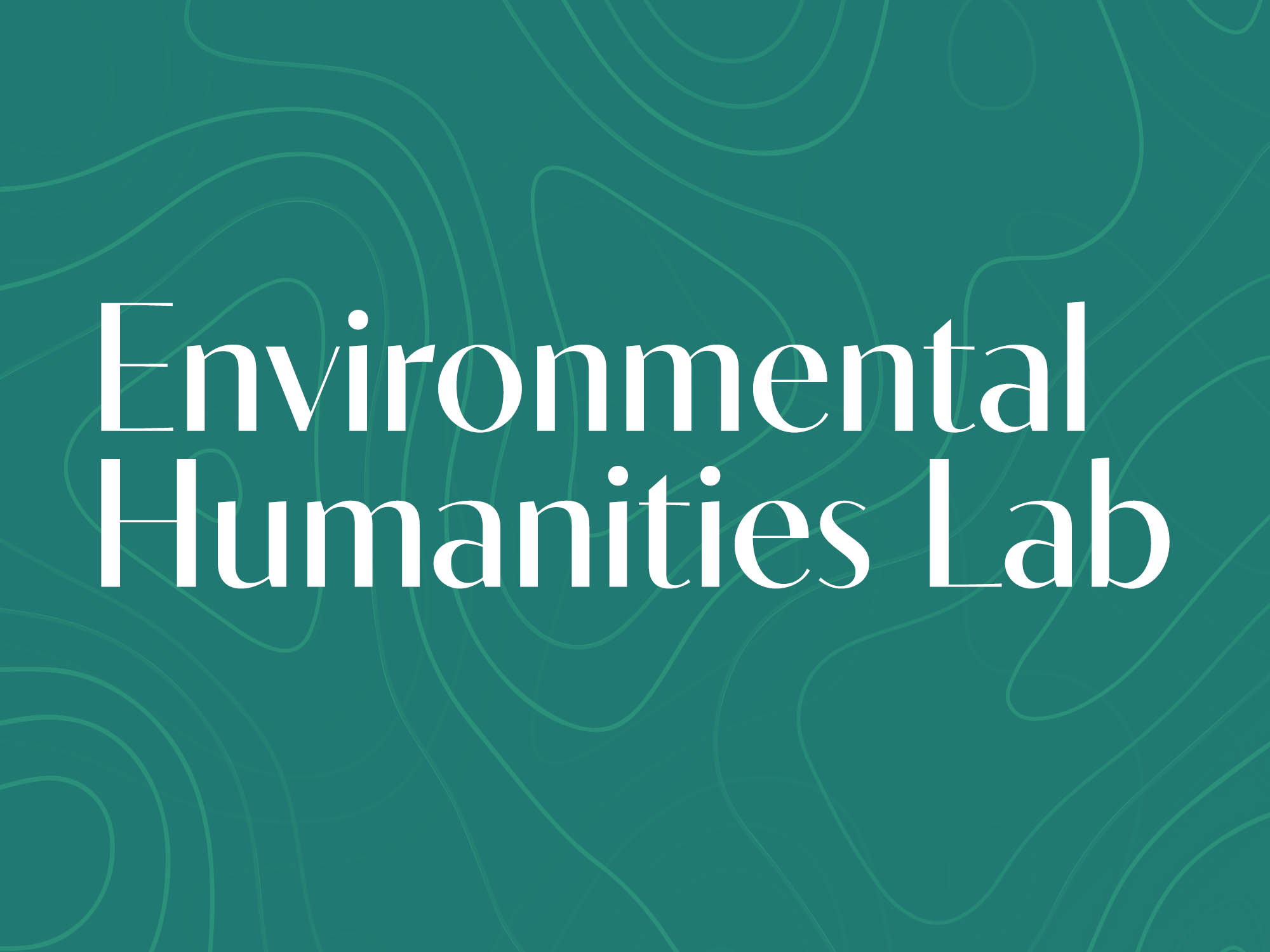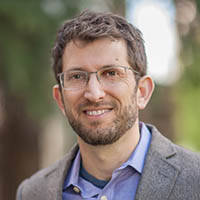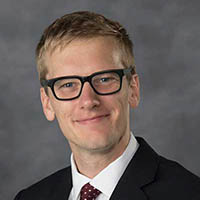Environmental Humanities Lab
The HRC’s Environmental Humanities Lab is a convening ground centering humanistic inquiry in a broader field of transdisciplinary environmental scholarship. We understand environmental humanities as an interdisciplinary mode of inquiry that seeks to understand, interpret and diagnose how social and cultural relationships with the natural world are mediated by texts, media, art, history and embodied experience.

Meet the Team

Jesse Goldstein, Ph.D.
Co-Director
Jesse Goldstein is an associate professor of Sociology, and author of Planetary Improvement: Cleantech Entrepreneurship and the Contradictions of Green Capitalism. His work explores the cultural political economy of rich world environmentalism, from biomimicry and other techno-fixes to the logics of settler futurity and green Keynesianism.

Kai Bosworth, Ph.D.
Co-Director
Kai Bosworth is a geographer and political ecologist, and assistant professor at the School of World Studies, Virginia Commonwealth University. Bosworth is the author of Pipeline Populism: Affective Infrastructures of Grassroots Environmentalism in the 21st Century, which examines the possibilities and limitations of pipeline opposition movements in the central United States in grounding the popular politics of climate justice.
Current Projects
Data Ecologies Network
Project Co-Convenors: Jesse Goldstein and Jenny Rhee
The Data Ecologies Network aims to account for the data economy’s multiple scales and interlinked ecologies by connecting the infrastructural with the algorithmic, and the innovative with the extractive. How can we connect the algorithmic injustices of predictive policing or precision medicine to the environmental injustices of data infrastructures? How can we trace the neocolonial linkages that place Virginia’s data centers within a global matrix of extractive economies that includes precarious gig workers across the Global South (who label data and moderate content for machine learning systems), high-tech production in China, and toxic mining and e-waste sacrifice zones in the Congo and in Ghana and Pakistan, respectively? We will respond to these questions through a series of workshops with invited fellows and a public panel in spring 2025.
Richmond Toxic Tours
Project Director: Kai Bosworth
The environmental justice movement in the US south first piloted “toxic tours” as a method of showing politicians and outsiders the noxious conditions in which they lived and worked. As an alternative method of history storytelling, toxic tours combine science, public history, and political organizing in order to create stronger ties to the places we inhabit, and the diverse communities therein. For human geographers and political ecologists, toxic tours further demonstrate that regular people are themselves expert creators of knowledge concerning urban environmental history, and of political diagnoses of the structural causes of such inequality. Along with students who take INTL 325 Nature Culture Justice, we are piloting diverse ways of documenting Richmond’s environmental histories and presents, including through zines, web materials, and in-person toxic tours. For more information, contact Kai Bosworth at bosworthk@vcu.edu.
University Sustainability
Project Directors: Jesse Goldstein and Kai Bosworth, with student researcher Caroline May
Institutions of higher education position themselves as progressive leaders on questions of sustainability. But to what extent are they really making meaningful ecological changes to campus life, ending dirty research practices, and supporting more just relationships with surrounding communities? This project examines how universities (including VCU) narrate their ecological actions (or lack thereof). By examining voluntary, self-reported data from the Sustainability Tracking, Assessment and Rating System (STARS), we investigate the progress and limits of current university sustainability practices. This project is convened by Jesse Goldstein and Kai Bosworth, with student researcher Caroline May.
Climate Circles
Project Directors: Jesse Goldstein and Selma Ait-Bella
Building on the Climate Psychology Association’s “Climate Cafe” project, this team is developing a version of the climate cafe specifically tailored for student-run spaces. Our Climate Circles, which we have been hosting at the Pace Center, offer a calm and safe environment for folks to share stories and process varying emotions such as climate grief, climate anxiety, and other related, hard-to-identify feelings around the climate crisis. Upcoming Climate Circles will be announced here and through the Billion Worlds Lab, as part of their Free School initiative. Students interested in either attending or learning how to facilitate Climate Circles can do so through the Billion Worlds Lab VIP program, and all who are interested in attending or hosting a future Climate Circle (we are happy to train new facilitators or work with your organization/department!) can contact Jesse Goldstein at jgoldstein2@vcu.edu.
Loose Parts
Project Director: Corin Hewitt
This VA Humanities funded project explores outdoor adventure play through a series of community conversations and pop-up adventure play experiences. Through documentation of these play-events and accompanying workshops, the team is creating short videos about adventure play. Three play actions took place in 2023: “The Fountain” at Patrick Henry Elementary, “The Crater” at Blue Sky Fund, and “Small Fires” at Lois Harrison-Jones Elementary. Each play-action is carefully designed in collaboration with our community hosts and supervised by trained playworkers who are working with Hewitt as part of his VIP lab, “Being Material.” While the typical adventure playground has four essential components (a vacant lot, “junk” and materials, kids, and adult/teen playworkers), our approach overlays a fifth element: the work of contemporary artists. In our playspaces, children will respond to, ignore, deface, build on, or destroy a set of rotating "provocations" created specifically for each play-action. Each of our events provides a space for parents, teachers and the broader community to engage with project team members as well as visiting adventure play experts in facilitated dialog about childhood, creativity and play. If you're interested in this project, or the VIP lab, please reach out to Corin Hewitt at chewitt@vcu.edu.
Reparative Land Justice Initiative
Project Directors: Duron Chavis, Meghan Gough, Susan Bodnar-Deren and Jesse Goldstein
This community-driven research focuses on questions around Black Food Sovereignty in Richmond, and community wealth building at minority led urban agriculture sites. For generations, farming has been used by Black people to build self-determined communities and to resist oppressive structures. Working in collaboration with community research partner Duron Chavis, founder of Happily Natural Day and a leading figure in Black food justice, this project asks, what grows in Black-led urban agricultural spaces, beyond food? This project includes a growing team of community co-researchers, as well as VCU professors Rohan Kalyan and John Jones. The project begins with storytelling interviews, and will evolve into a broader effort to build a community-values profile and counter-mapping meant to support Black-led urban agriculture spaces and to establish their centrality to both environmental and climate justice infrastructure. Students can work on this project through a VIP lab hosted in the department of Sociology. For inquiries, please contact Meghan Gough at mzgough@vcu.edu.
The John R. Lewis Memorial Lecture Series
In 2022, the Reparative Land Justice Initiative and the HRC helped facilitate the launch of a lecture series honoring the late John R. Lewis. John was a co-founder of Renew Richmond and a central figure supporting black urban agriculture in Richmond and beyond. Led by a community advisory committee, the series will host a leading figure in black urban agriculture for a public lecture and community workshop each year. Our inaugural lecturer was Malik Yakini, who presented “Growing Kale, Shifting Power and Building Food Sovereignty” on February 21, 2023. We look forward to a second event this coming Spring term. Inquiries can be directed to Jesse Goldstein at jgoldstein2@vcu.edu.
Past Projects
Project Director: Emily Smith
This project investigates the nature, history and function of materials that shape our lives. The team is working with student researchers on a collaborative and experimental website, and is preparing for new initiatives. The group includes, Jeff Shockley (Business), Kristin Carleton (Interior Design), Corin Hewitt (Sculpture and Extended Media), and Radhika Barua (Mechanical Engineering). Students can contribute to this work via VIP labs in both Sculpture and Sociology. Inquiries can be directed to Emily Smith at smithea8@vcu.edu.
In collaboration with VCU’s new Institute for Sustainable Energy and Environments (ISEE), the EH lab held an inaugural transdisciplinary incubator in Fall 2022. Over a series of 5 workshop meetings, a cohort of over 30 VCU scholars collaboratively developed ideas for transdisciplinary research. Read more.
Project Directors: Molly Ransone, Stephen Fong and Jesse Goldstein
The Beyond Sustainability Design Sprint was a two week long, extra-curricular activity where student teams participated in a structured process to develop, plan and contextualize a proposal for transformations that take VCU “beyond sustainability.” In February of 2023, student teams mapped out ambitious ideas that addressed systemic roots of our campus unsustainability problems. With thematic foci that map onto the ONE VCU Sustainability plan’s core goals, the project was meant to both engage with the Office of Sustainability’s planning, while demonstrating how our students can push us to consider even more creative, ambitious and innovative solutions.
Upcoming Events
No upcoming events at this time. You can watch event recordings from our 2022-23 Environmental Speaker Series on Youtube.